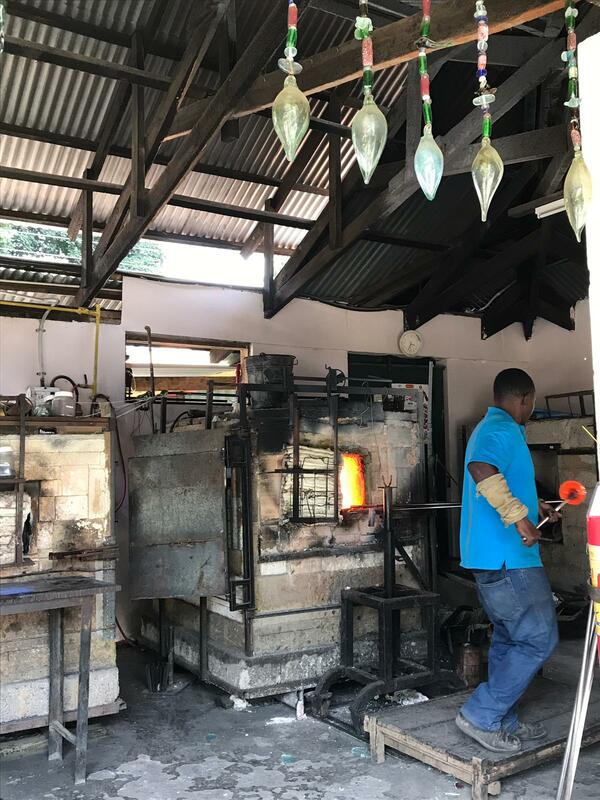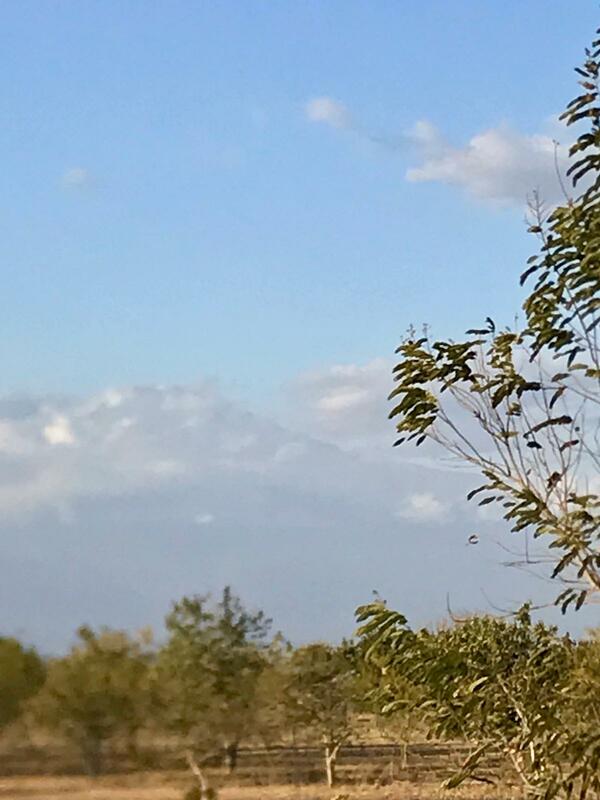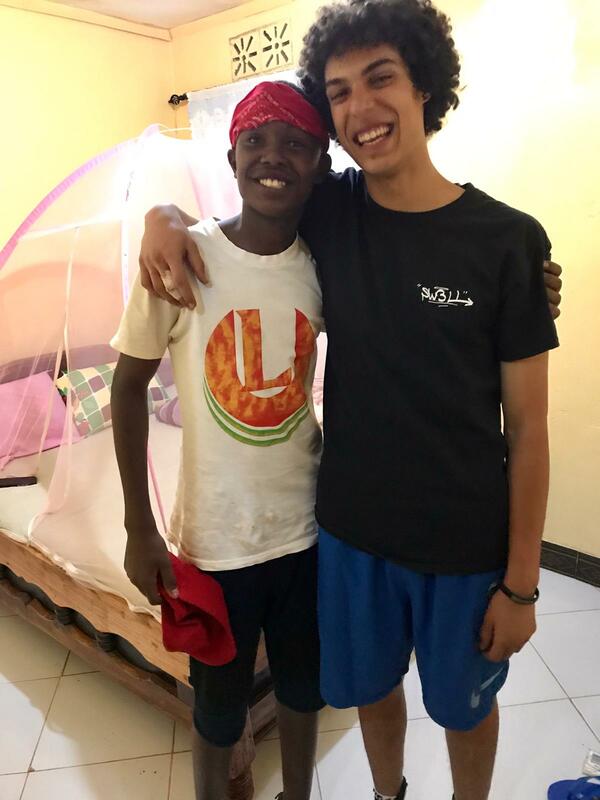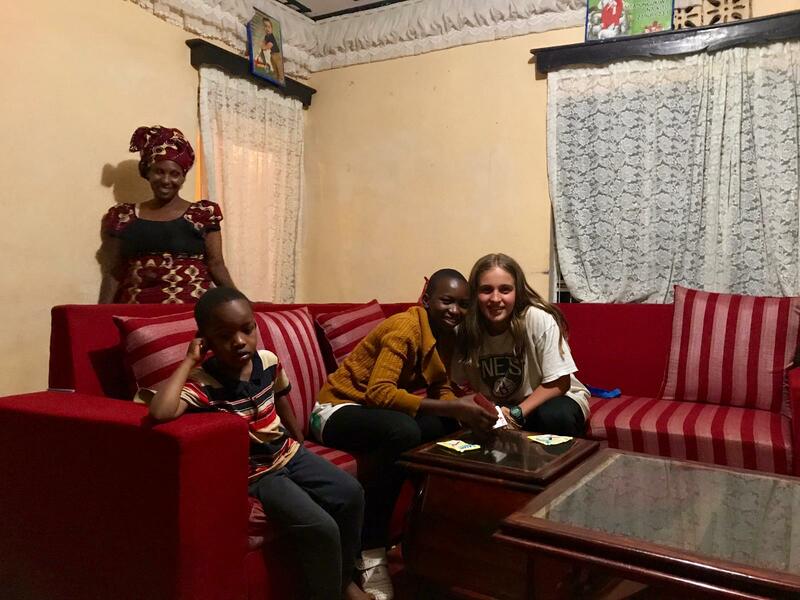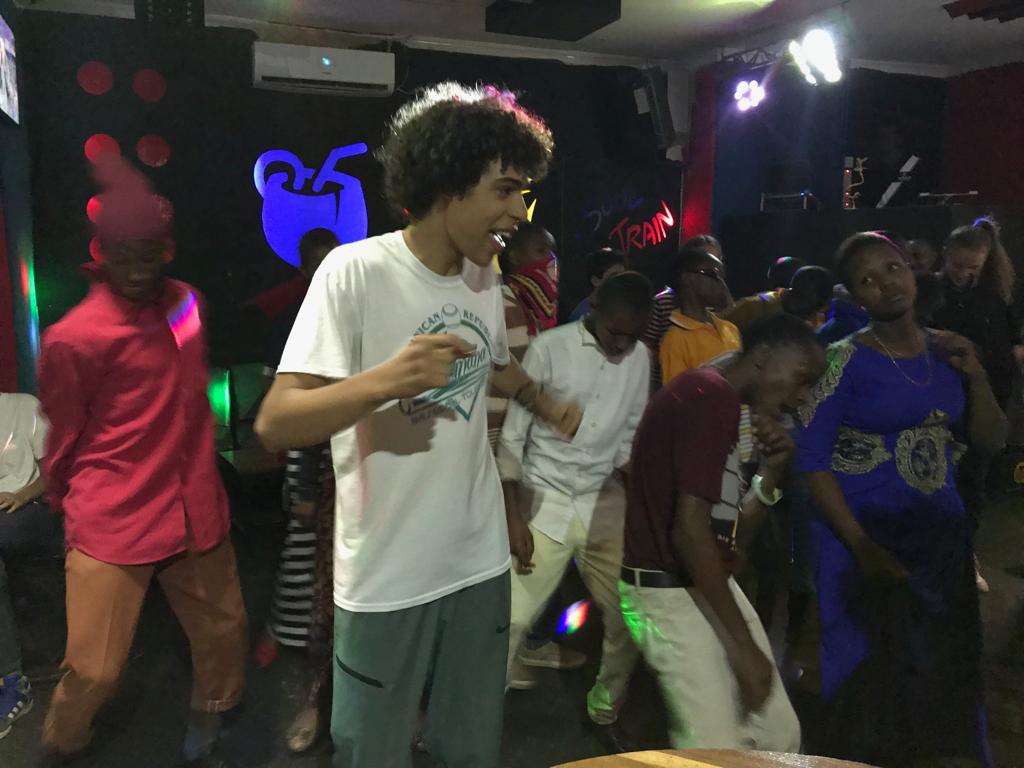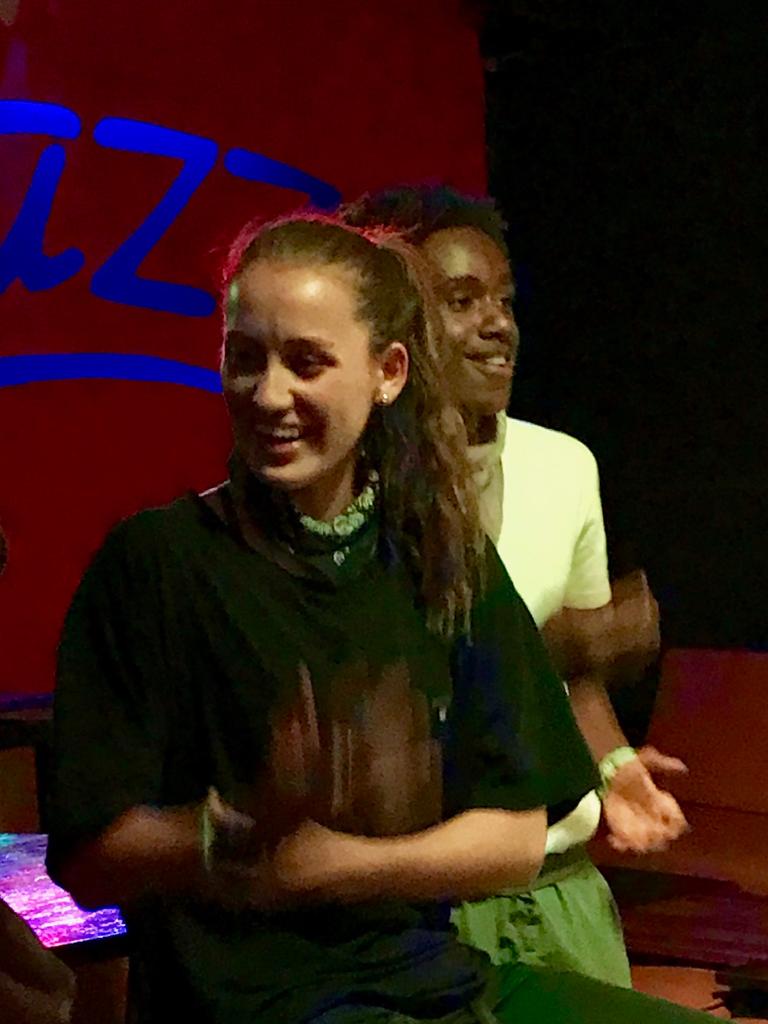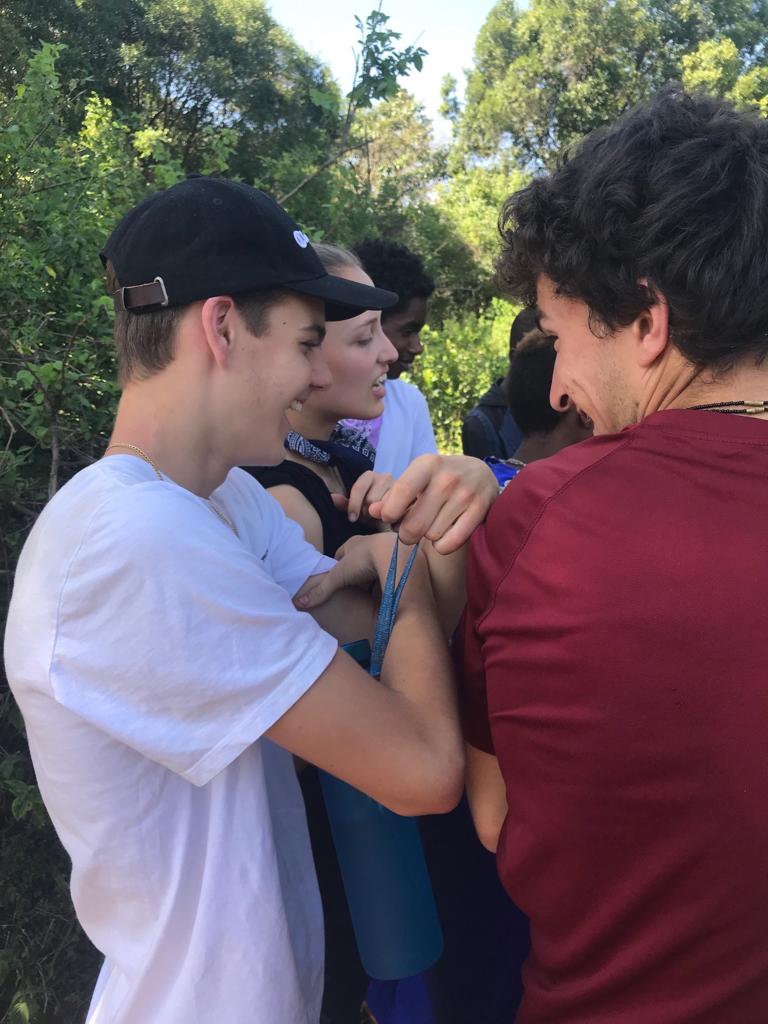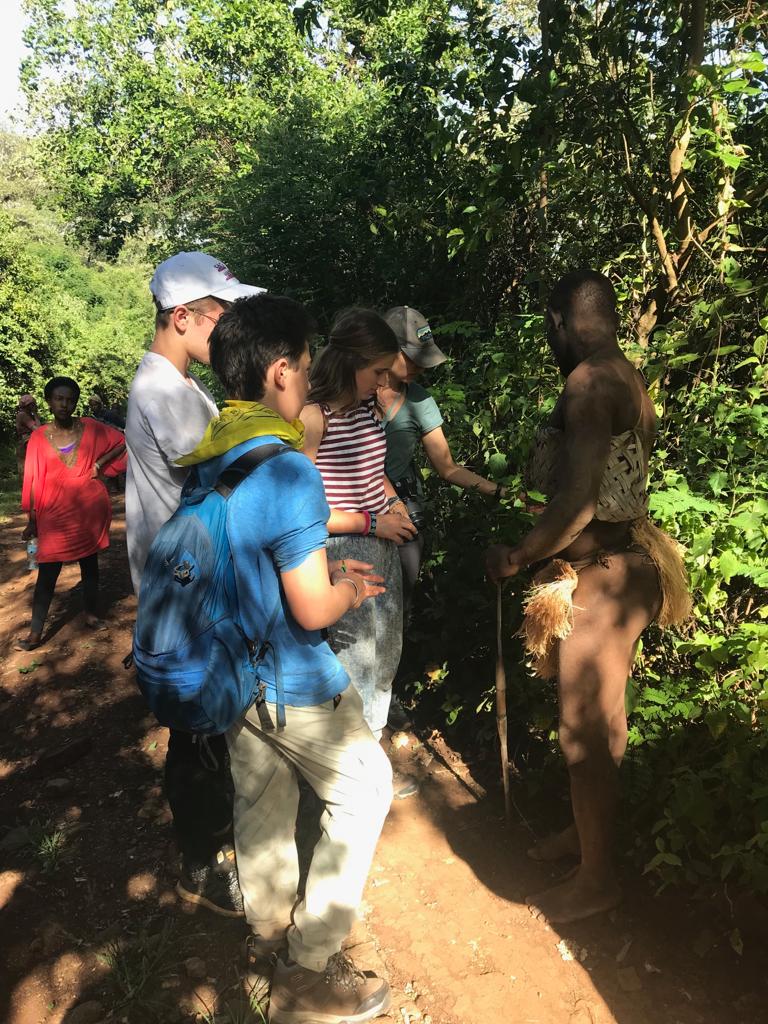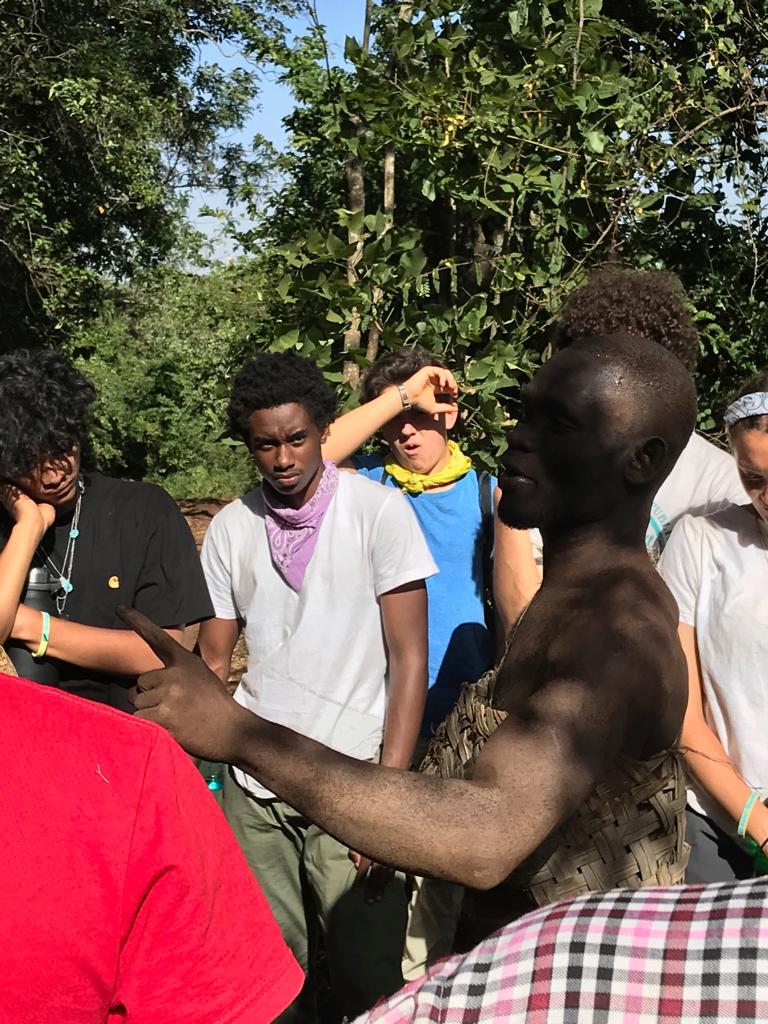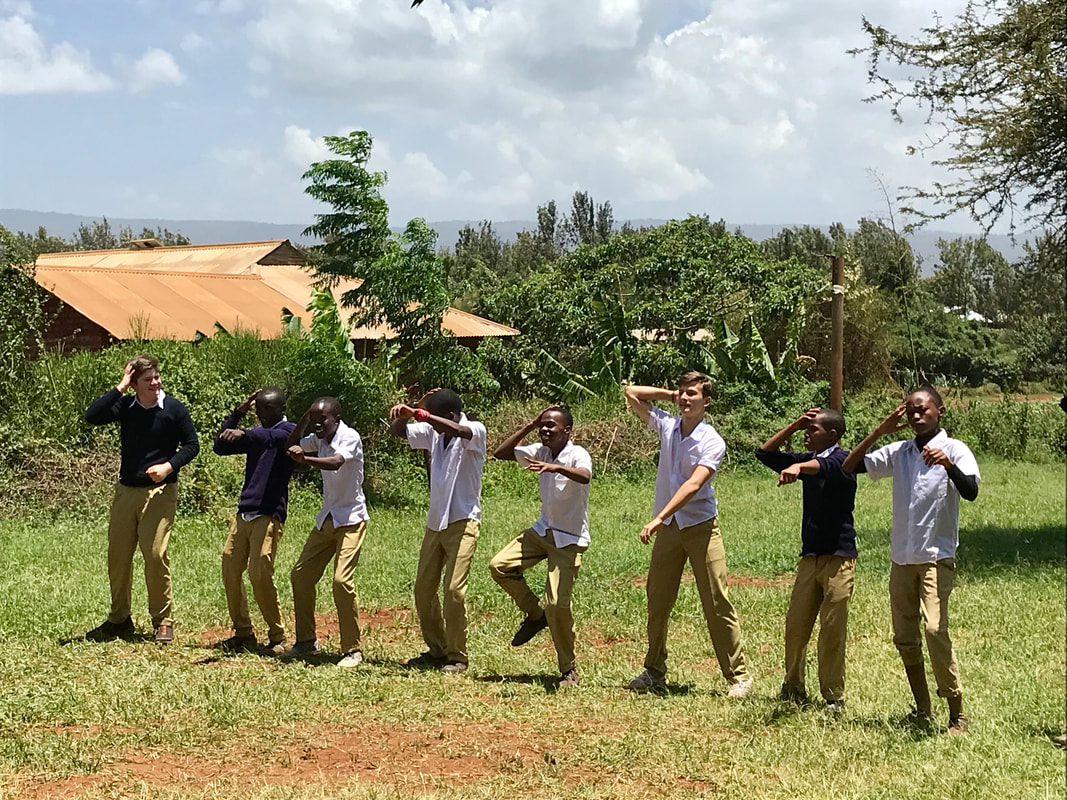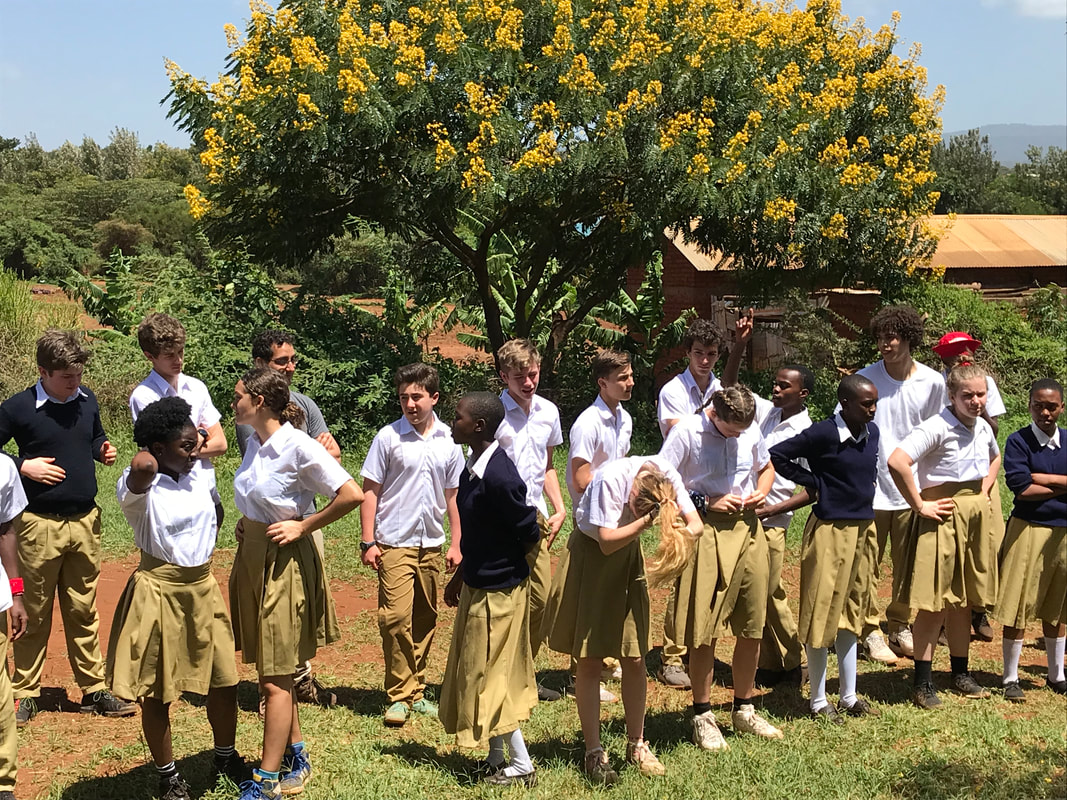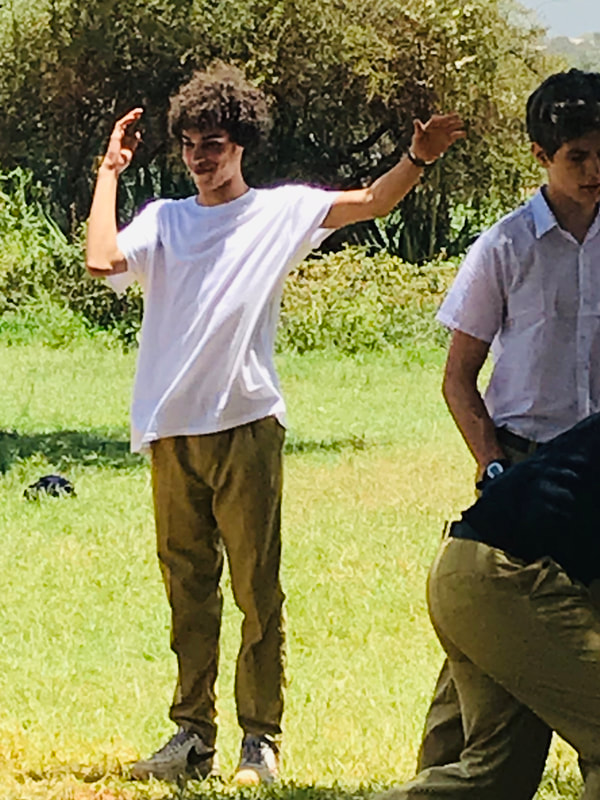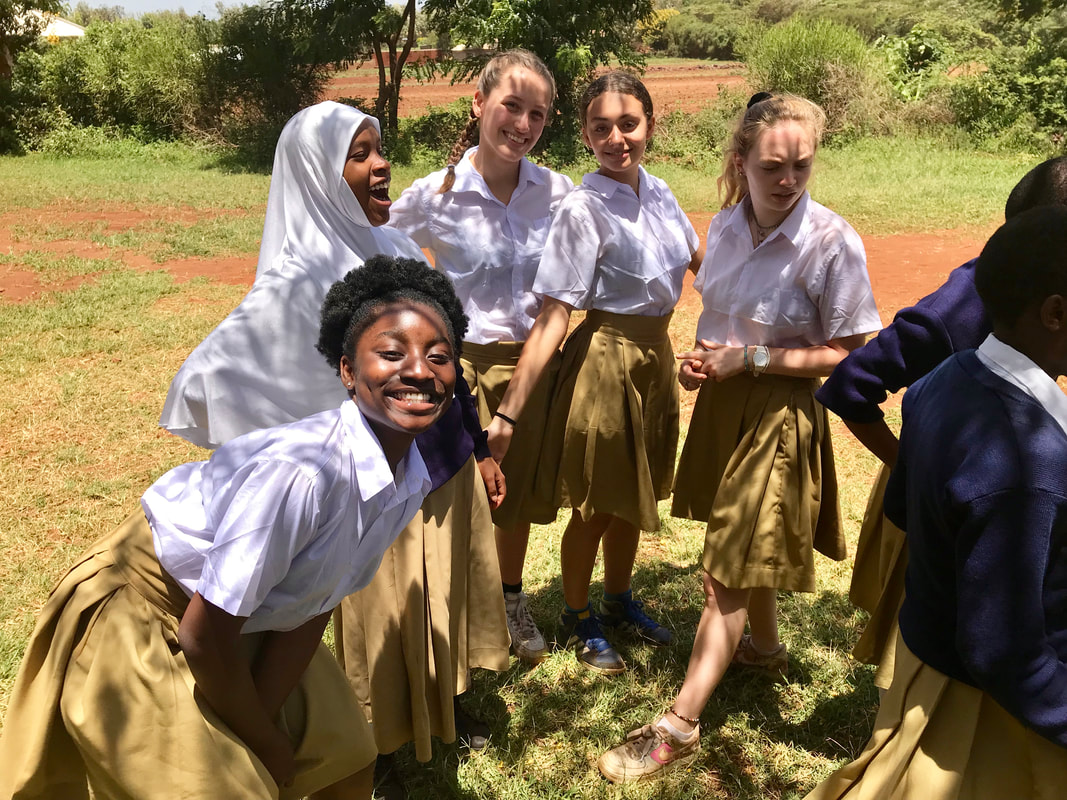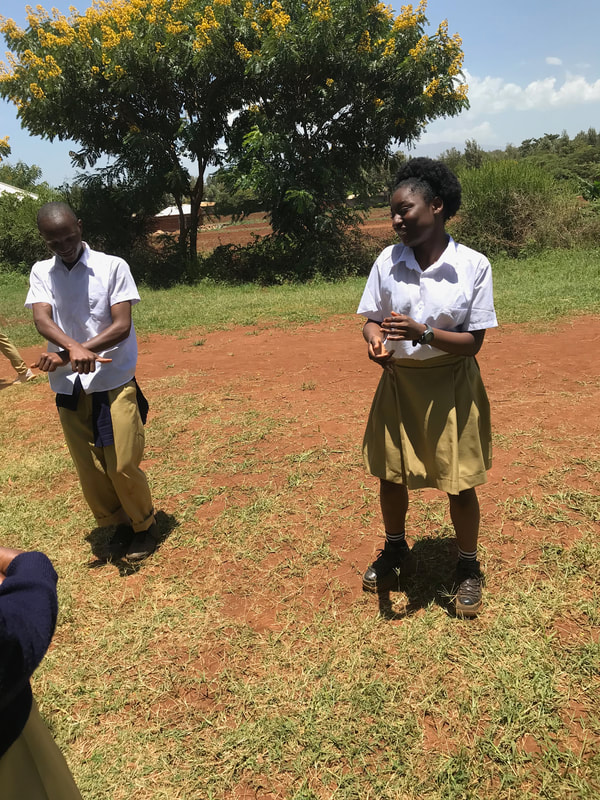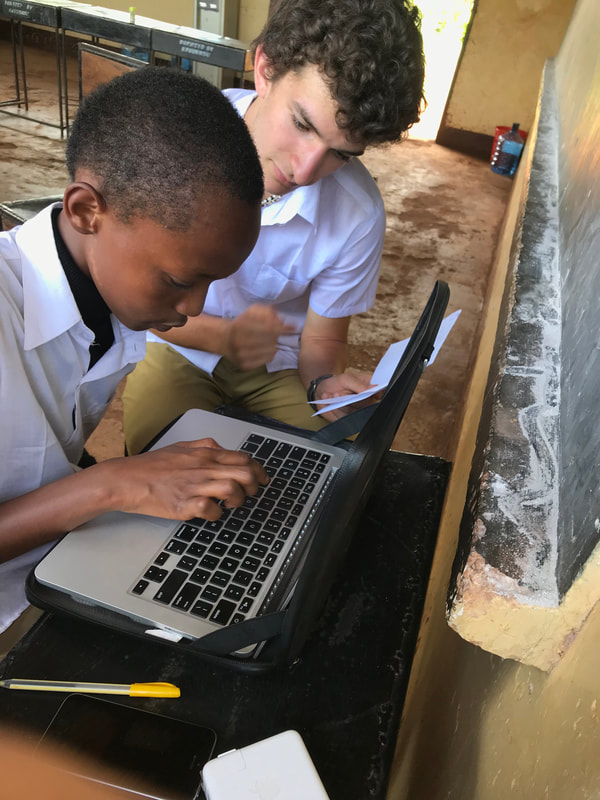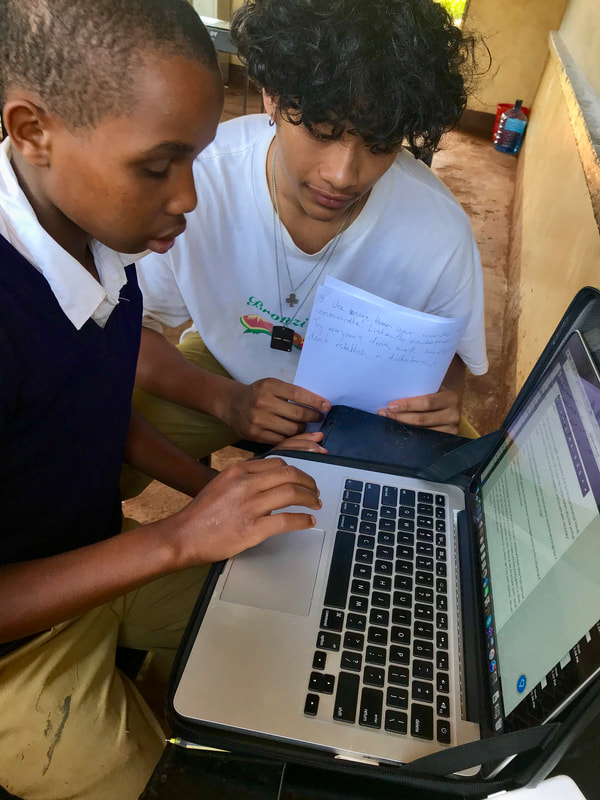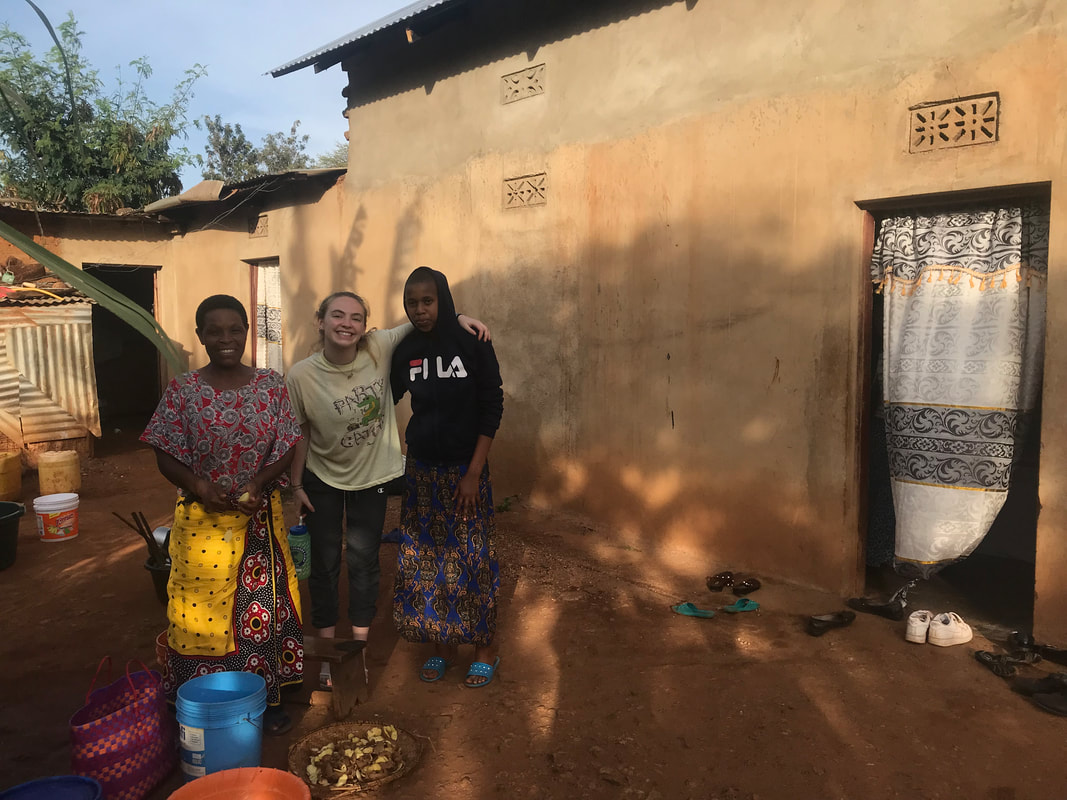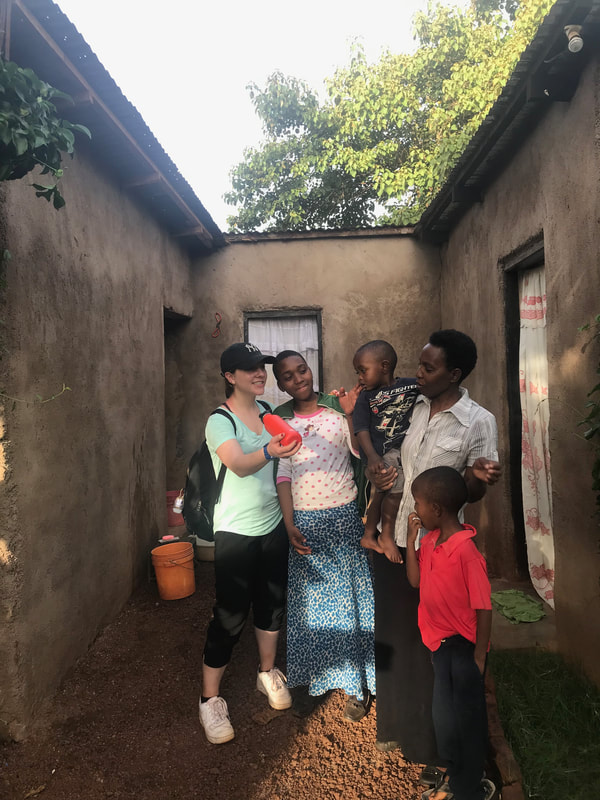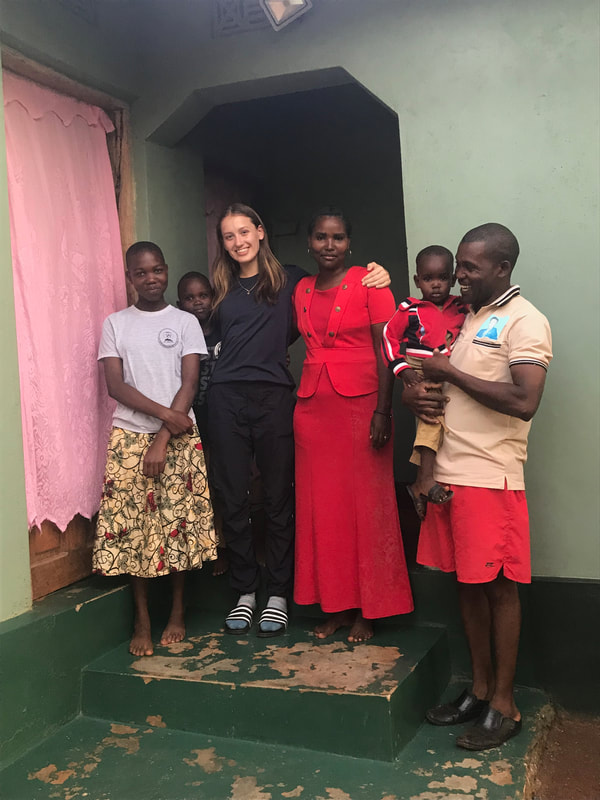ABSOLUTELY
|
Hello, friends,
I've just received a WhatsApp message from Ms. Heldring, letting me know the group has arrived at the airport and is waiting to board. It sounds like they had a great last day, with time to visit a glass blowing factory and they even caught a glimpse of Mt. Kilimanjaro en route to the airport. They'll be home soon! - B. Clarke Farewell Assembly: After we had the emotional candle ceremony, we played around on the newly refurbished netball court with our buddies before the next activity. The farewell assembly was a time where American and Tanzanian teachers could give short speeches to the whole school and the host families to share our experiences, and thank each other and the parents for contributing to the experience. We were delighted by the appearance of school scouts who performed an impressive magic trip and a marching ceremony. Soon after all the BC students and their Tanzanian buddies stood up and performed a dance which we had practiced a few times during the week. The dance was then followed a ceremonial game of volleyball which was briefly interrupted by the volleyball landing up in an acacia tree on the first hit. Food/pics/gifts: After the game and an extravagant lunch for us and our host families, we all took pictures with our families in our gifted stylish Tanzanian outfits. As we got on to the bus the DJ played perfect duet by Ed Sheehan which fit the mood well as many of the American and Tanzanian students cried. Crying bus music: After the emotional farewells as a token to the culture on the way to the hotel we listen to the number one single by Platinum Diamond called Tatema. Currently: As of now we are back at Patamu hotel in Karatu, reflecting on the trip and playing cards as a community. It's still an emotional time but together we are all able to relate to each other. This trip has truly been an experience to remember. by Sam and Ethan The first thing that our group did on the start of an emotional day was congregate at our common classroom for instructions from Randall for what we would be doing on our last day. We started the day off talking to our Tanzanian buddies about our leadership stories, which is a staple in the World Leadership School. We all talked about how this trip has changed our point of view on our daily life and how to be a leader. It was really illuminating seeing the similarities between both what the Tanzanian students and what we took away from the program. We stuck pieces of paper on our backs, and then people wrote down what they thought our leadership characteristics were on our backs. It was great to see how our peers see us as leaders.
Then we came together as one group and started the candle circle which is also a World Leadership School tradition. Randall lit a candle and started off by talking to us about his hope for the world and globalization, and how we exceeded his expectations for the trip. As we went around the circle, each person revealed what we learned from the week together, and it started to get very emotional. As more and more people went, everyone began to realize that this was the last day that we would all share together as a group. Despite the relatively amount of time we spent together, we have made very strong connections. We were all very sad as the candle ceremony came to an end, after everyone everyone had shared why this program was so impactful. Many people realized how close and how similar as people we were, even though we live in different places and live in different culture. Many other people talked about how they learned how to be a valuable member of a team, even if they weren’t leading. They talked about how there can’t be a leader without followers and there can’t be followers without a leader. We also talked about how the U.S. students had learned so much about kindness and open-mindedness from our Tanzanian buddies. All in all, this was a great wrap up to a very impactful and fun program that changed everyone’s lives. -Elliott and Graeme Our day started at 8:30 am, when we met at school to leave for the Maasai village, which is a rather touristic destination, but the closest we could get to learning about the Maasai people. Upon arrival, we browsed the jewelry stands while the the Maasai, wearing vivid reds and blues, were getting ready to put on a dancing show for us. Some of them were selling their traditional jewelry. Many of us had our first bargaining experience here and many of us left with beautiful Maasai jewelry. Next we gathered in the center of the village, as the Maasai showed us a traditional Maasai dance, featuring percussion from the jewelry, singing, and a jumping dance. A few of us chose to join in; for women this included putting on the traditional beaded necklaces and hats worn by women during this dance. For men, sticks were given out in order to assist their jumping. We were given the opportunity to explore the houses of the Maasai people. The houses were very small, resembling what we might call a hut, made out of sturdy wooden frames and covered with a waterproof type of cement made from a mixture of cow dung and dirt. A fire burned in the center of the house, spreading a thick smoke throughout the enclosure. There was also a large wooden bed frame and a cow hide on top. There were small holes in the walls that provided some light and ventilation. The roofs were made out of plastic tarps and grasses. We concluded this visit by finalizing jewelry purchases and saying “Asante” (thank you) to the Maasai people who welcomed us into their homes. Our next stop was to visit Didi the Mawanda guide, educator and naturalist, on a local hiking trail. He was dressed in traditional Mawanda garb and was painted in what appeared to be dirt and ash. Didi gave us some valuable information about the medicinal properties of the local flora. The first stop we made on the trail was for him to demonstrate the smoking of elephant poop. According to him, the effects of smoking elephant poo heightened his senses allowing him to walk barefoot through the woods. Elephants have trouble digesting nutrients, so all of those vitamins get passed on to the consumer of their poo. This process named the elephant: Mother of the Jungle. We continued our walk to a spot where he showed us how to cure a snake bite, heating and chewing bark. We made more stops like this, where his animal noises, and comical sound effects kept us interested as he described the natural processes of the outdoors. Our walk ended with the explanation of the baboon, or the “Boss of the jungle.” He told us how they can outsmart the other animals, and in turn outlive them. We came home exhausted, enlightened, mind-blown and in a good mood from the enlightening experiences of the day! by Ruby and Mira Hi friends,
I just received a few photos from Ms. Heldring via WhatsApp, with a promise of a full post tomorrow. Some are from homestays, and it looks to me like the group spent at least part of the day among a Hadza community, one of the last remaining hunter-gatherer cultures. -B. Clarke Today we came down to Geykrum Arusha Secondary School in order to begin the Mchaka-Mchaka Adventure Race. The group was split into five groups, each group consisting of a navigator, photographer, safety guide, item keeper, and captain. We kicked things off with the “broccoli race” and the winner, Tife’s team, got first pick one of the five challenges in the race. This series of challenges were meant to give us more insight into Tanzanian culture and people. As we completed each activity, the team captain would collect 1-3 (4 for extra credit) rubber bands based on teamwork, participation, and success. The first challenge was the dancing intensive. Each group was taught a popular Tanzanian routine by our local dance instructor. The dance we learned had moves mimicking the Macarena, but with a Tanzanian twist of claps, kicks, and rotations. Even those that wouldn’t consider themselves dancers on a normal day got in on the fun. The second challenge entailed each group gathering water from the local well and wheelbarrowing it to a church, providing them with water for the next week. Students pushed the handcart from all sides up a rather steep hill, cautious of water spillage, rocks on the road, and piki pikis (motorcycles). Once we got to the church, students emptied the barrels and returned the cart back down the rocky path for other teams to use. Next, students learned how to cook chapati, Tanzanian pancakes made of either dough or eggs. Students rolled the dough and fried each chapati, helping each other out to gain bands and eat the delicious chapati with a side of hot tea at the end of the challenge. We got to experience cooking a Tanzanian dish, which many of us eat each morning for breakfasts in our homestays. An interview of a Tanzanian mom in town, the fourth challenge, seemed like the easiest to gain three bands. However, students learned that only the American students in each group could participate and would have to conduct the interview entirely in Kiswahili. We asked questions like, “What do you do in your free time?”, “What’s your favorite food?”, and so forth. We got bands based on pronunciation and execution, the first part being pretty difficult because of our American accents. The last challenge, the most adrenaline-inducing, was the kuku challenge. In this challenge, our country coordinator, Tim, would release a chicken for us to chase and capture in under ten minutes. One group had the smart chicken that decided the best course of action was to run into a thorny acacia bush. Students had to throw stones to scare it out, employ sticks to prod the chicken, and carefully put their hands in the bush to direct the chicken out. None of these strategies worked and the chicken stood its ground. Eventually, one of the Tanzanian students dove into the bush and came out victorious, chicken in hand, legs clutched together; they were ready for the next step. The chicken was brought to a stoop, and that’s when, well... at the end, the chicken was plucked for tomorrow’s dinner. Overall, only one team won the race. However, the Mchaka-Mchaka Adventure Race was a vital part for all students in our immersion to deepen our connection with the community around us that we’ve grown to love. Tonight is the second-to-last night we will sleep in our homestays, and we’re certainly not ready to leave yet. Badai! (Later!) ⁃ Tife & Dom The text from the recent post about homestays didn't upload, so here's a description to go along with the photos!
-------- Homestays are one of the the key aspects of the Tanzania Spring Intensive experience. The homestays began on Saturday, as Berkeley Carroll students were paired up with students of the G/Arusha Secondary School. While some students headed off to their homestays individually for 6 nights, other BC students opted to pair up and stay in one Tanzanian student’s house for three nights, and then move to another’s for the next 3 nights. This differs from past trips, as normally, homestays would only last for 2 nights. Even though the Tanzanian way of life is much different than ours, there tends to also be many similarities as well. While listening to the experiences of other students with their homestays, we began to realize how the way of life between each family differs. While some families have very traditional lifestyles, some are very Westernized. One of THE big differences between households is religion. While many families are Christian, a few others practice Islam. These religions are practiced differently depending on each household, which leads to a varying experience amongst BC students. The food that these families have provided us has been amazing, and there has been more than enough of it. Some popular foods include chicken, rice, spaghetti, potatoes, eggplant, and other meats. A popular Tanzanian dish is ugali, which is made by mixing maize flour and boiling water to create a paste. Pretty much all of the families do not have running water, but hygiene and using the bathroom has not been an issue. It is much different than what we are used to, as we use a bucket of water to bathe and there is only a hole in the ground to use the bathroom. We are also unable to use Tanzanian tap water, even to brush our teeth, because we are not yet adjusted to the microbes in it. This means that we have been drinking and using bottled water for everything. It has also been a big adjustment to not have a sink, as we have been washing our hands with a pitcher of water, and occasionally, a bucket with a spout. While there have been many aspects of the homestay experience that are very different to the Berkeley Carroll students and that have pushed them out of their comfort zones, the bonds that have been created and the learning of other cultures and ways of life will never go away. ⁃ David & Oliver |
|
